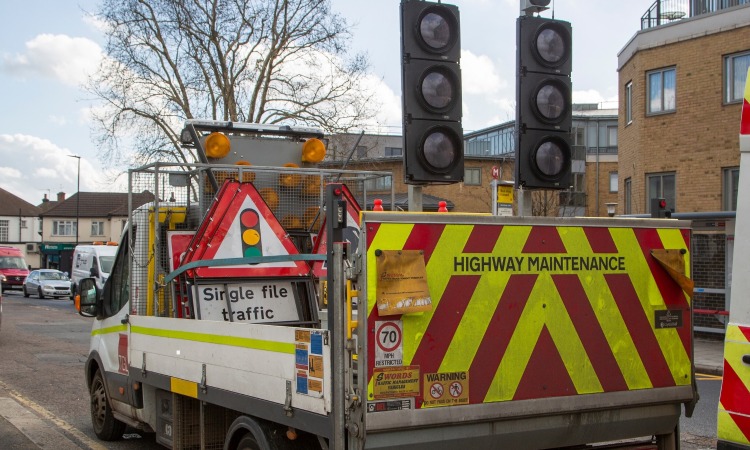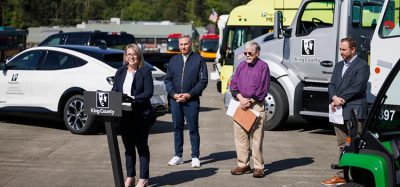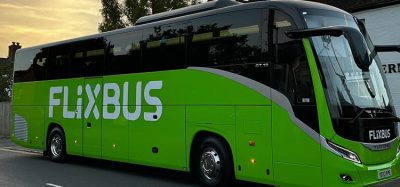TfL launches new challenge to find ways of making roads safer and more efficient
- Like
- Digg
- Del
- Tumblr
- VKontakte
- Buffer
- Love This
- Odnoklassniki
- Meneame
- Blogger
- Amazon
- Yahoo Mail
- Gmail
- AOL
- Newsvine
- HackerNews
- Evernote
- MySpace
- Mail.ru
- Viadeo
- Line
- Comments
- Yummly
- SMS
- Viber
- Telegram
- Subscribe
- Skype
- Facebook Messenger
- Kakao
- LiveJournal
- Yammer
- Edgar
- Fintel
- Mix
- Instapaper
- Copy Link
Posted: 1 December 2022 | Intelligent Transport | No comments yet
Transport for London’s new RoadLab 2.0 challenge will focus on reducing the disruption that roadworks often cause bus services, as well as how data on walking and cycling in London can be better used to plan future works.


Credit: Transport for London
Transport for London (TfL) has announced that it has launched a new innovation challenge, RoadLab 2.0, and will be looking to work with the private sector to develop new ways of tackling some of the issues caused by roadworks for construction and utilities work. The programme is being funded by TfL’s Lane Rental Scheme, which charges utility companies and TfL contractors for digging up roads at the most traffic-sensitive times and locations.
According to TfL, it is vital that London’s roads operate safely and effectively to ensure a cleaner and more sustainable transport network for everyone who lives and works in the capital. In 2019, TfL had launched an innovation challenge called RoadLab, calling on the UK’s leading innovators to develop technology that could make roadworks in the capital safer, smarter and more accessible.
RoadLab 2.0 will build on the success of the original challenge, this time focusing on improving portable traffic signals to reduce congestion and looking at ways in which TfL can better use data on walking and cycling in London to plan roadworks.
Portable traffic signals are used for temporary traffic management on roads. Roadworks carried out for construction and utilities work are responsible for 80 per cent of bus delays. If portable traffic lights are not properly set up for changing traffic conditions, they can cause further delays for everyone who uses the roads.
London’s Ultra Low Emission Zone to be expanded to all boroughs
More than 20,000 portable signals are used yearly in London, which results in thousands of hours of lost productivity, wasted time and excess carbon emissions and pollution. TfL is looking for innovative solutions that will make roads more efficient by reducing delays caused by the signals and making them more reliable.
TfL is also asking innovators for ideas to make active travel in the capital safer and easier, by using data to plan roadworks around people walking and cycling. Though data has been gathered about the numbers of people walking and cycling, planning for people carrying out these journeys could be further improved through the use of data. Solutions could include better real-time data about these journeys to help better plan roadworks in future.
Rikesh Shah, TfL’s Head of Open Innovation, said: “We want to continue working with a diverse range of the best market innovators to solve some of London’s key challenges. We’ve proven through FreightLab and RoadLab 1.0 that working openly in partnership with innovators brings in new ideas at scale, and I’m keen we harness the ideas, skills and energy of the market to help us make London’s roads safer and more accessible for sustainable travel.”
TfL is already using innovative solutions from the first RoadLab challenge to cut congestion, including simulation technology to model roadworks and artificial intelligence software that uses anonymised social media data to detect emerging disruptions.
If you liked this, you may also be interested in:
▶ Mayor of London’s plan to accelerate capital’s transition to electric vehicles
▶ TfL publishes new plan to boost level of leisure walking in London
Related topics
Air Quality, Infrastructure & Urban Planning, Passenger Experience, Public Transport, Sustainable Urban Transport
Related modes
Bus & Coach
Related cities
London
Related countries
United Kingdom
Related organisations
Transport for London (TfL)
Related people
Rikesh Shah








